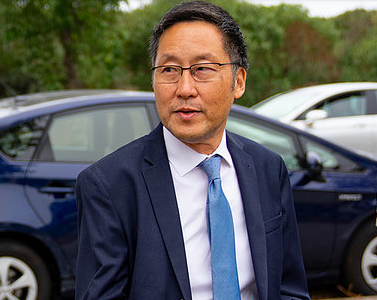The Board of Supes is directly challenging the City Planning Commission over its willingness to allow housing development on sites with high levels of toxic contamination.
The Land Use and Transportation Committee Monday/3 and the full Board Tuesday/4 will consider a resolution supporting a state law that is aimed at exactly the (very dubious) exemption the planners have been using to get around strict rules on developing toxic sites.

The state legislation, SB 37 by state Sen. David Cortese, aims to eliminate something called the “common sense” exemption to the toxic development rules.
The rules were written by Cortese’s father when he was in the same office. He created what’s known as the Cortese List – an inventory of hazardous sites in the state.
If a developer wants to build on one of those sites – and there are more than 2,000 in San Francisco – they have to go through a strict process of public notice, hearings, and environmental review. The Department of Public Health has an oversight role.
Many of the sites are former gas stations and auto repair places, which had underground fuel storage tanks. Cleaning up and mitigating the mess on those sites often requires the removal of tons of dirt – an expensive process.
City planners, on the other hand, have found a loophole to exempt developers of housing from the rules. In an excellent investigative report, the SF Chronicle found that at least a dozen market-rate housing developments in the city got categorial exemptions from the state’s environmental quality law – allowing them to sidestep the toxic mitigation procedures.
One of those was a site at 1776 Green Street, where Benzene had leaked out of an old tank and was present in the soil at 900 times the acceptable limit for human exposure.
The Planning Department ruled that the project could go forward without any strict environmental review.
SB 37 would specifically state that a project on the Cortese list
shall also not be exempt from CEQA as a project where it can be seen with certainty that there is no possibility that the activity in question may have a significant effect on the environment, commonly known as the “common-sense exemption.”
Sup. Gordon Mar, with the support of Sups. Myrna Melgar (a former Planning Commission president), Shamann Walton, Aaron Peskin, Dean Preston, Connie Chan, and Matt Haney, has introduced a resolution supporting SB 37 that cites the long history of problems in the SF Planning Department:
Since 2015 at least 20 of these sites were considered for, or received a categorical exemption from, the state’s environmental regulatory process known as the California Environmental Quality Act or CEQA, in direct conflict with the legal mandate that a categorical exemption cannot be issued for a project proposed for construction on any Cortese List site, whether open or closed …
Other major cities throughout California routinely require CEQA review for projects proposed to be constructed on contaminated sites on the Cortese List, typically requiring preparation of a mitigated negative declaration, allowing the pubic to review and comment on the proposed clean-up plan for at least 20 days ….
The San Francisco Chronicle reported on a case involving a 100-year-old automobile repair shop that was proposed to be converted to residential condominiums located at 1776 Green Street in San Francisco, which was on the Cortese List due to the presence of benzene and other toxic chemicals from leaking underground storage tanks, where— despite the presence of benzene at levels 900 times above residential standards, and 200 times above commercial standards— the San Francisco Planning Department issued a CEQA categorical exemption for the proposed project.
After the Chron investigation, the Planning Department blamed the state for these problems and said the situation was “regrettable.”
Rich Hillis, who was on the commission when these exemptions were approved, is now the planning director.
The resolution will, of course, pass, probably unanimously, and maybe the Planning Department – run by an appointee of the mayor and overseen by a panel dominated by appointees of the mayor – will follow the new rules.
But nobody has been held accountable for all of these decisions that helped private developers build luxury housing – but potentially could have exposed construction workers and later residents to dangerous levels of harmful chemicals.
This is the kind of situation that a city Office of the Public Advocate could investigate. When the supes refused to put a Charter Amendment before the voters to create that office, Sup. Aaron Peskin noted that the board’s Government Audit and Oversight Committee could do a lot of the work that is needed.
Maybe they can start with an investigative hearing into how City Planning let this happen for so long that the state Legislature now has to approve a bill to stop it.
We will have more this week on the battle to save City College, but I want to take a moment here to share something amazing.
Jen Balderama, a journalist who has worked for the New York Times and is now at the Washington Post, explained in a May 2 oped how she got her start in the trade – and how City College of San Francisco saved her life.
She doesn’t mention Juan Gonzalez, who has run the Journalism Department at the school for more than 30 years. Nor does she mention that the school is facing massive cuts threatening its mission – and threatening to take away the ability of the next generation of Jen Balderama’s from getting the life-changing experience of City College of San Francisco.
But she makes a powerful point, that community colleges are among the nation’s most important institutions – and shouldn’t be shredded because of threats from discredited accreditors and a global pandemic.



